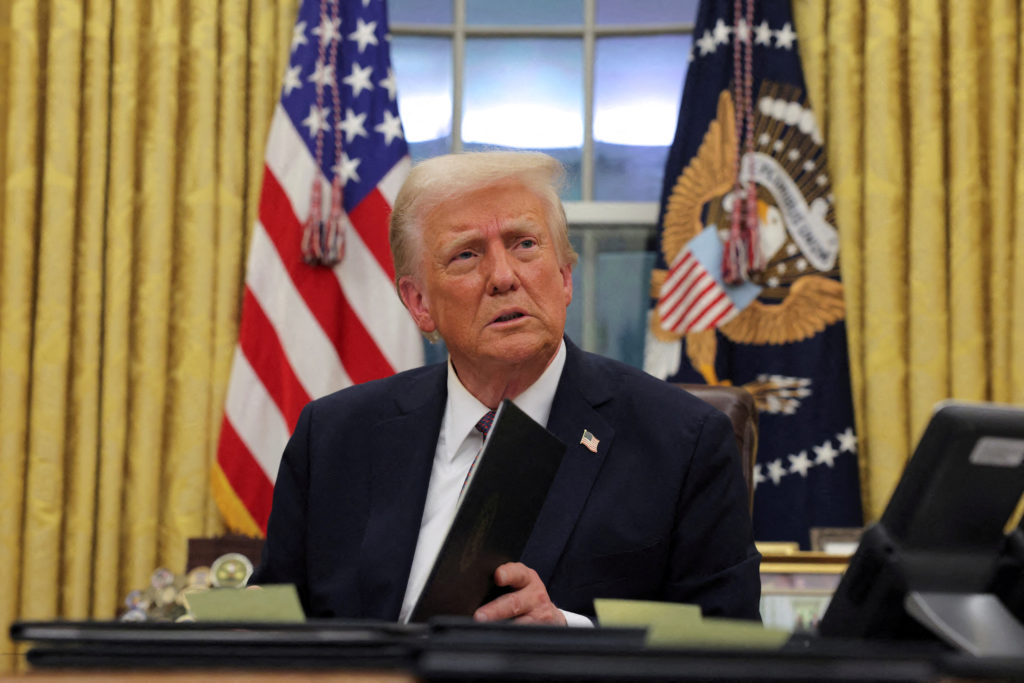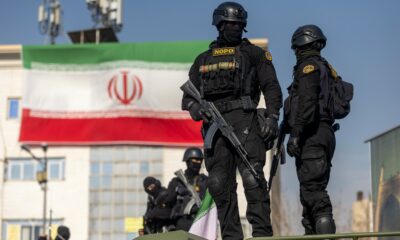News
Trump’s Misguided Claims: The Truth About Sharia Law Beyond the Headlines

When Donald Trump took to the United Nations stage this week, his 55-minute tirade made headlines for all the familiar reasons: bold accusations, sweeping generalizations, and a knack for stirring outrage. Among his many claims was a swipe at London’s mayor, Sadiq Khan, where Trump warned that the city could “go to Sharia law.”
The remark instantly triggered debates, drawing sharp reactions on social media. For some, it was yet another example of Trump playing to fear and Islamophobic tropes. For others, it reinforced long-held misconceptions about what Sharia law actually is.
So, let’s take a step back. What exactly is Sharia law and why does it keep showing up in political fights?
What Sharia Law Really Means
The term Sharia comes from Arabic, meaning “the path” or “the way.” Far from being a single rigid code, it’s a broad ethical and legal framework that guides Muslims in personal, spiritual, and social matters. Think of it as a way of life that covers everything from prayer and fasting to family law, finance, and yes criminal justice.
But here’s where the nuance matters: the penal aspect of Sharia, the part often sensationalized in media and politics, is only a fraction of the whole.
Islamic scholars have historically divided Sharia punishments into three categories:
-
Hudud (fixed punishments): Rarely applied due to extremely high evidence standards. For example, proving adultery requires four eyewitnessessomething almost impossible in practice.
-
Qisās (retaliation): Focuses on proportionate justice for murder or injury but places a strong emphasis on forgiveness and financial compensation instead of punishment.
-
Taʿzīr (discretionary): The most common category, where judges issue context-based punishments that are often rehabilitative rather than harsh.
In short, mercy, forgiveness, and discretion are not loopholes, they’re at the heart of the system.
How Misconceptions Took Hold
After 9/11, Western discourse increasingly framed Sharia as synonymous with extremism. Hollywood films, political campaigns, and sensational news stories painted it as violent and oppressive, especially toward women. Yet history tells a different story.
In 7th-century Arabia, early Islamic law granted women inheritance rights, divorce rights, and protection against abuse, progressive for its time. While patriarchal systems still shape how laws are applied today, the roots of Sharia included protections that were ahead of many other societies of that era.
The most dangerous misconception? Equating Sharia with groups like ISIS. These extremist factions cherry-pick and distort Islamic terminology to justify political violence. Their brutality is rejected by mainstream Muslim scholars and communities, but their actions have poisoned global perceptions.
The Politics of Fear
Trump’s remarks are not new. They echo a well-worn strategy in politics: invoke Sharia to stoke fear, frame Muslims as a threat, and draw a line between “us” and “them.”
But here’s the reality, no Western city is on the brink of “adopting Sharia law.” Muslim communities in places like London may choose to apply aspects of Sharia in personal or family matters (such as marriage contracts or inheritance) through voluntary religious councils, much like Jewish or Christian faith-based tribunals. These are supplementary, not replacements for state law.
In fact, many Muslim-majority countries themselves only apply Sharia selectivelyoften in civil matters like finance and family, while leaving penal codes largely untouched.
Why This Matters Now
Public reaction to Trump’s comments shows a growing frustration with political leaders who reduce complex issues to soundbites. In South Africa, the UK, and elsewhere, social media lit up with people pointing out that fearmongering about Sharia doesn’t help address real urban issues like crime, inequality, or climate policythe very topics Trump claimed to care about in his speech.
By simplifying Sharia into a bogeyman, Trump not only misrepresents a faith tradition followed by nearly two billion people but also distracts from urgent policy conversations.
Understanding Sharia means recognizing it as a diverse, evolving tradition that cannot be boxed into one narrative. Like any legal and moral system, it has its complexities, debates, and reforms. To reduce it to “London going to Sharia law” is not only inaccurate, it’s irresponsible.
At its heart, Sharia law is about guidance, not domination. And while Trump may have scored headlines with his jab, the real story lies in challenging these misconceptions and grounding our conversations in truth, not fear.
{Source: The Citizen}
Follow Joburg ETC on Facebook, Twitter , TikTok and Instagram
For more News in Johannesburg, visit joburgetc.com



























